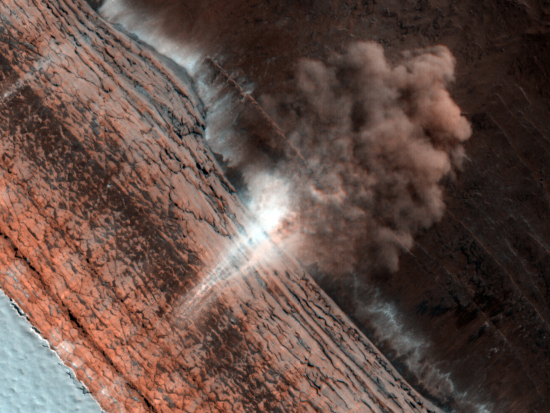According to Robert Zubrin, the Obama administration is planning to terminate all funding to NASA’s planetary program, while cutting back significantly on its astronomy program.
Word has leaked out that in its new budget, the Obama administration intends to terminate NASA’s planetary exploration program. The Mars Science Lab Curiosity, being readied on the pad, will be launched, as will the nearly completed small MAVEN orbiter scheduled for 2013, but that will be it. No further missions to anywhere are planned. After 2013, America’s amazing career of planetary exploration, which ran from the Mariner probes in the 1960s through the great Pioneer, Viking, Voyager, Pathfinder, Mars Global Surveyor, Mars Odyssey, Spirit, Opportunity, Mars Reconnaissance Orbiter, Galileo and Cassini missions, will simply end.
Furthermore, the plan from the Office of Management and Budget (OMB) also leaves the space astronomy program adrift and headed for destruction. The now-orbiting Kepler Telescope will be turned off in midmission, stopping it before it can complete its goal of finding other Earths. Even worse, the magnificent Webb Telescope, the agency’s flagship, which promises fundamental breakthroughs in our understanding of the laws of the universe, is not sufficiently funded to allow successful completion. This guarantees further costly delays, with the ensuing budgetary overruns leading inevitably to eventual cancellation.
I suspect these cuts have been leaked now, months before the budget is publicly released, in order to whip up support for funding these programs. I also find it distressing that these programs, which cost practically nothing, are targets, while others that cost many many more billions (in NASA and elsewhere) remain fully funded.

